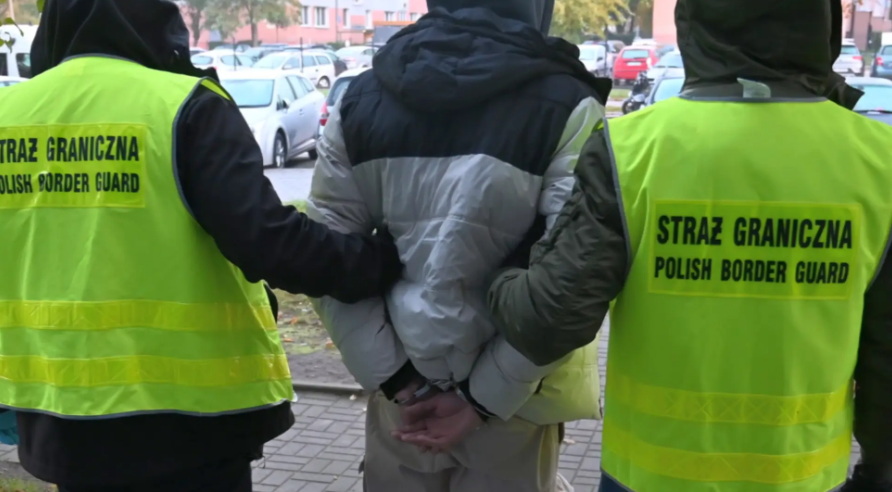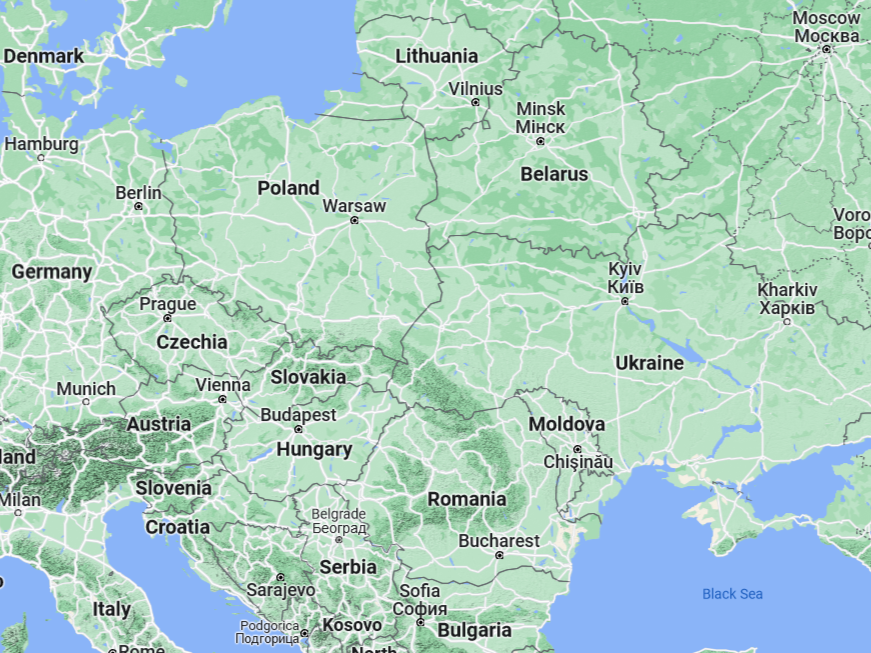As Poland ramps up deportation as part of a strategy to combat organized crime, parliament approved a new bill which could suspend the right to seek asylum on Polish soil.
On Tuesday (February 25), Polish Interior Minister Tomasz Siemoniak announced on the X platform that Poland is planning to deport almost 400 migrants following a crackdown on organized crime in the country.
"Since the beginning of 2025, 2,616 foreigners have been charged with committing crimes in Poland ... the expulsion procedure from Poland was initiated against 398 ...," Siemoniak wrote.
Prime Minister Donald Tusk's responded to the statement on X saying "Time to deport."
Return procedures have been launched against 180 from Ukraine, almost 60 from Georgia and a similar figure from Colombia, according to Polish broadcaster TVP World.
The deportations are part of a wider policy seeking to tackle rising organized crime involving some immigrant groups. The Polish government has also attributed some of these challenges to geopolitical tensions, particularly the political instability in neighboring Belarus and the ongoing war in Ukraine. Authorities have previously alleged that Belarus and Russia are deliberately facilitating migrant crossings into Poland as a form of political pressure.
Under Tusk, the Polish government has distanced itself from many of the far-right policies of the previous government, although it has still taken an increasingly hardline position on migration.
Poland is currently holding the Presidency of the Council of the European Union in the first half of 2025, until June 30, with a focus on security and smuggling.
Read AlsoMigrants fuel Poland's economy, while politicians vow to crack down on them
Deportations ongoing
In recent months, Polish authorities have conducted large-scale crackdowns and deportations. A mass operation in February saw 1,474 arrests and the deportation of 166 foreign nationals, including Georgian, Colombian, and Ukrainian nationals. The government insists that these measures are essential to protect Polish citizens from rising crime associated with foreign nationals, particularly those involved in organized crime.
In 2024, Poland deported 8,500 foreign nationals, including 2,589 from Georgia. Similarly, of the 7,300 individuals expelled in 2023, over a third (2,783) were Georgian nationals, according to government data.
Czesław Mroczek, deputy head of the Ministry of Interior and Administration, indicated to the Rzeczpospolita newspaper that the government does not only seek to target criminals but also irregular migrants: “Our goal is to significantly reduce the number of people wanted on arrest warrants because the current actions are insufficient, but also those staying illegally in our country."

However, some experts are questioning the effectiveness of these measures in regards to public safety. General Adam Rapacki, a former deputy head of Poland's Ministry of the Interior, told TVP World that these "action-based" measures are insufficient and may lack long-term impact. He suggested that Poland should focus on consistent and systematic action, adding that that convicted criminals should be sent to prisons in their country of origin, “so that the Polish taxpayer does not have to pay for them."
Speaking to TVP World, Tomasz Safjański, head of the national office of Interpol and Europol, noted that foreign crime in Poland "has skyrocketed in the last decade."
He also raised concerns over the lack of police recruitment -- the Polish state news agency PAP reported data from November 2024 shows approximately 12,700 vacancies within the Polish police force.
Read Also Poland: Government expresses opposition to implementing EU migration pact if relocation is mandated
The right to asylum
Last October, the Polish government proposed new legislation allowing the government to temporarily suspend asylum applications in response to "direct security threats."
On Thursday (February 20), the Sejm, the lower house of parliament, voted in favor of the bill with a vote of 386 in favor and 38 against according to PAP.
If the bill is approved by the upper house, it would permit the Polish government to suspend the right to seek asylum for up to 60 days along certain parts of its border. This suspension could be extended with parliamentary consent and potentially renewed indefinitely. However, exceptions would apply to vulnerable individuals, such as unaccompanied minors, pregnant women, and those requiring special care due to their age or health.
Lydia Gall, senior Europe and Central Asia researcher at Human Rights Watch (HRW) stated that the bill "flies in the face of Poland’s international and EU obligations and should be voted down.”
HRW also warned that the bill "risks formalizing ongoing unlawful and abusive pushbacks at Poland’s border with Belarus," and would expose people to inhumane conditions in the country, in violation of the principle of non-refoulement, which prohibits returns to a country where they could be subjected to torture or inhumane or degrading treatment.
In a statement delivered in the Sejm, UNHCR also emphasized that the principle of non-refoulement, also applies in the context of the "instrumentalization" or the so-called "weaponization" of migrants and refugees.
UNHCR also urged the Polish government to "address national security, migration management and asylum concerns in a calibrated fashion." Stating that all state parties are "required to ensure that persons seeking asylum have access to screening procedures which allow for the examination of their claims."
Read AlsoPoland plans to temporarily suspend asylum 'within weeks'
Poland's stance on the EU Migration Pact
Tusk has stated that Poland will not implement the migration pact if it requires accepting migrants from other EU countries. He has sought flexibility within the pact, emphasizing Poland’s refusal to accept forced relocations. Instead, Poland may prefer financial penalties or alternative solutions.
Poland has strongly criticized the EU’s migration pact, particularly the proposal to relocate migrants between member states. The government rejects compulsory relocation quotas, arguing it has already shouldered a significant burden by hosting millions of Ukrainian refugees. Tusk’s administration insists Poland cannot take in more migrants while supporting Ukraine amid the ongoing war.

The EU's Asylum and Migration Pact, set to be implemented by 2026, aims to streamline asylum processes and speed up deportations for migrants not qualifying for asylum. However, Poland remains opposed to the mandatory relocation provisions, citing security concerns due to its proximity to Belarus and Russia.
Read Also
Poland requests exemption from EU migration pact
Geopolitical concerns
Poland’s resistance to the EU migration pact comes at a time when it is also seeking additional EU support for border security, especially in light of the increasing use of migration as a geopolitical weapon by Belarus and Russia. Poland shares an external EU border with Russia (Kaliningrad), Belarus and Ukraine. Currently, its border with Belarus is especially vulnerable.

Tusk’s government has argued that Poland should not be penalized for its efforts to support Ukraine, a position that has garnered sympathy from other EU members, particularly those concerned with Russian aggression in the region.
In response, Poland has implemented measures like the "East Shield" project, which strengthens border security, and regularly conducts police sweeps along its borders.
Read Also
